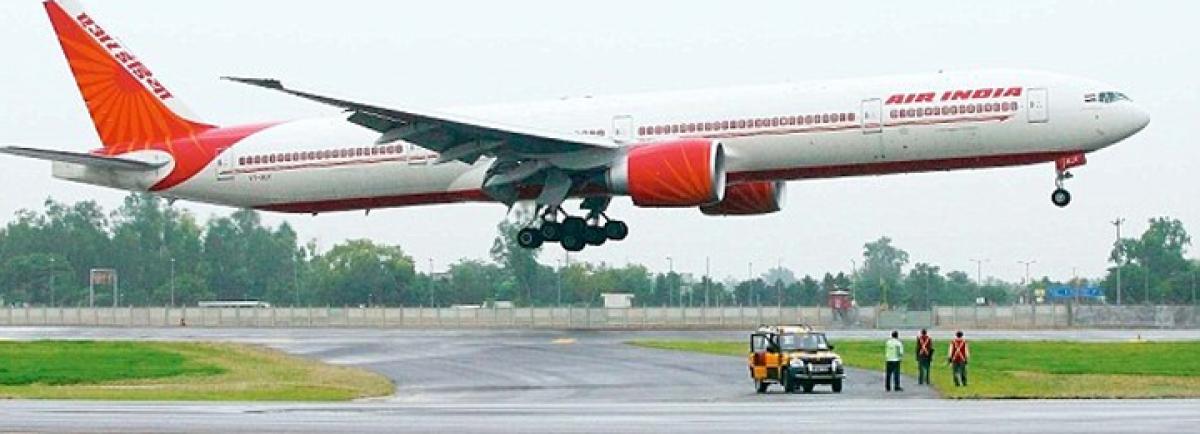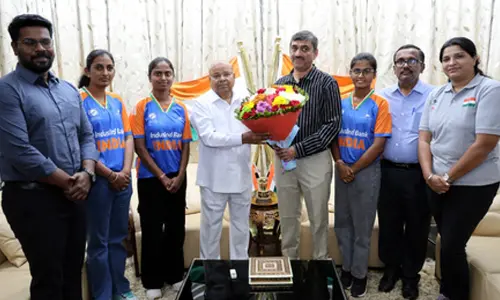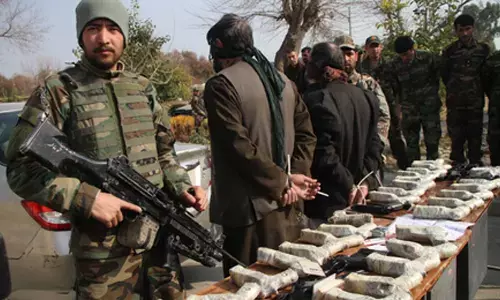Draft Civil Aviation Policy lacks intent and direction

In an effort to take air travel to the masses, the Modi government has come out with a new draft civil aviation policy, which was unveiled proposed to cap small town route fares at Rs. 2,500 per flying hour per ticket in its draft civil aviation policy. However, it has also proposed a 2-per cent cess on all domestic trunk route tickets as well as international tickets.
In an effort to take air travel to the masses, the Modi government has come out with a new draft civil aviation policy, which was unveiled proposed to cap small town route fares at Rs. 2,500 per flying hour per ticket in its draft civil aviation policy. However, it has also proposed a 2-per cent cess on all domestic trunk route tickets as well as international tickets.

The ₹1,500 crore collected annually from the cess will be used for viability gap funding (VGF) to operate flights in remote areas. The draft policy proposes to create a Regional Connectivity Fund for VGF. It wants the VGF shared by the Centre and the States in the 80:20 ratios.
However, the draft civil aviation policy cannot be considered a policy document, unless it is gets approved by the Cabinet and with incorporation of stakeholder views.
The draft policy has announced the intent of the Government to corporatize the Airport Authority of India (AAI) and Pawan Hans helicopter corporation and also list them on the stock market. This has welcomed by all quarters as it will bring transparency and greater efficiency to those institutions.
The draft policy has not brought out the difficulties facing by AAI. However, the draft is mute on hiving off the Air traffic management, par of AAI, which has been recommended by various committees and will also make Air navigation service most robust. This will also reduce the profitability of AAI substantially, as Air Navigation is a profit centre.
The draft policy also expressed its intent to have six international hubs in India, this is a more wishful, but also realistic. As Mumbai Airport reaching a saturation point soon and New Airport is coming up as yet. Only Bangalore and Hyderabad can be considered for a Hub. Of this, Delhi would qualify on grounds of being the biggest Airport of India and still having capacity to expand more. But in order to create a Hub there is a need to have a strong long haul airline of the country.
At present, India has none. Further, it is a fact that the previous government had given bilateral air service rights in the gulf to sweeten the private deal; it has reinforced the hub in that country instead.
The draft policy has come up with three alternatives to the 5/20 rule — retain it, scrap it, or allow airlines to fly to SAARC nations if they have earned 300 domestic flying credits. For flying to other international destinations, 600 domestic flying credits are required. An airline earns more domestic flying credits if it operates to remote areas than what it earns if it operates between metro cities or between tier II cities.
On top of this is restriction of 5/20 policy of not allowing new airlines to go aboard unless they have complete 5 years in service and have 20 aircrafts. This is impose an artificial barrier on Indian airlines to utilize India’s portion of bilateral rights to foreign countries due shortage of aircrafts. Therefore creation of six international hub is an unrealistic target. A final decision on the 5/20 rule will be taken by the Cabinet.
Similarly the draft policy talks about Maintenance, Repair and Overhaul (MRO) services will be service tax exempt. It adds that States will be persuaded not to levy VAT. It also proposes that MRO, ground handling, cargo and ATF infrastructure at an airport get infrastructure status, with benefits under Section 80-IA of the Income-Tax Act.
India is losing about US$800 million a year currently of this business as our Indian fleet of civil aircrafts have to be sent aboard- Sri Lanka, Singapore, Malaysia and UAE - for major servicing. This is because more expensive to do repairs and maintenance in India mainly due to various taxes. It also amounts to loss of potential skilled employment. It is a national shame and waste which the former Finance Minister also recognized during budget speech a couple of years ago but did nothing about it.
This should have been fixed much earlier. India has the potential to get MRO business from neighbouring countries also. However, the timeframe for this is not proposed.
On the issue of Air Turbine Fuel (ATF), the policy recognizes that ATF is 40 percent to 45 percent higher than international price. The importers of ATF and the PSU Oil companies have a monophony over it and appear to be misusing it since a long time. It is a clear cut case of abuse of dominant position and needs an examination by Competition Commission. High rates of custom duty and high sales taxes by some states make it prohibitive. The draft policy promises to take steps to rationalize it. This is a critical issue and there is every need from the Government to have support over it.
The draft policy praised PPP agreements in Airport Development successful and has proposed more of them. However, there is a need to study the manner in which they have become more expensive to operate.
The role of Airport Economic Regulatory Authority is also need to examined, while the regulatory authority is correctly not answerable to the Parliament like in the USA. The tender for Delhi Airport has determined that 48 percent of the revenue airport will go to AAI as rent. This is a very high and the Airport operator has to take it out of Airlines and Passengers.
But this policy is also short of expectation. It expects that regional connectivity will be provided by the national level airlines by tweaking the Route Dispersal Guidelines (RDG) further, RDG is a much abused cross subsidy system forced on private airlines to meet the needs of regional aviation. Naresh Chandra Committee and others have suggested it and replacement by subsidy based system. Creation of an Essential Air Services Fund (EASF) has been suggested along with the method of obtaining funds for it. Draft Policy has not taken this into account. To expect that tweaking RDG provide good regional connectivity is neither good for the airlines nor for regions and is unlikely to succeed.
Finally, a glaring lacuna in the draft policy is the absence of mention of safety and security relating to aviation. India is already suffering on safety front. By keeping quiet on this issue the Government is evading its responsibility.
Next Story














